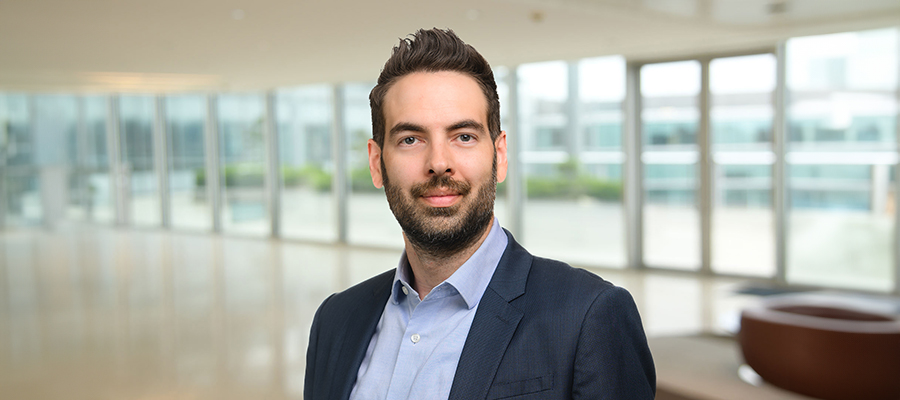

After more than a decade in the legal innovation field, Al Hounsell is no stranger to technology hype cycles.
His hiring at Norton Rose Fulbright Canada LLP – where he is currently director of strategic innovation and legal design – coincided with the first wave of artificial intelligence products to hit the legal market.
“I went through that initial cycle of AI excitement and disillusionment. I was able to witness everyone screaming that the sky was falling and that AI was going to take all of our jobs,” Hounsell says. “But once people actually started using these tools, very quickly they realized that AI as it existed then was nowhere remotely close to doing anything that could capture the full value of what a lawyer could provide, in basically any area at all.”
Next on the hype train were the metaverse and blockchain, each of which Hounsell remains largely skeptical of.
“I don’t really see the use case for either in terms of legal practice,” he says.
Right now, the legal profession – like much of the rest of the world – is in the middle of a fresh wave of excitement around generative AI. But this time, something feels different to Hounsell.
“It is not the same as the older version of AI and it’s definitely going to significantly impact what lawyers do,” he says.
Still, Hounsell is not ready to join the “sky-is-falling” brigade. Instead, he is betting on the resilience that the legal profession has demonstrated time and time again in the last couple of centuries.
“The new technology can help us do the rote stuff: things that are highly structured and predictable,” Hounsell explains. “The legal industry is going to keep moving to the grey area, that ever expanding area of complexity and confusion where humans are needed to help their clients strategically mitigate their risk.”
Hounsell will be sharing more of his insights when he returns for OsgoodePD’s 2nd Annual Forum on Artificial Intelligence (AI) and the Law. Following on from the success of last year’s debut, the online conference features two full days of programming on Oct. 9 and 10, led by a variety of industry and legal experts who will decode need-to-know technology and terminology for attendees, while offering practical insights and strategies for compliance with the constantly evolving AI regulatory framework. An online replay will follow in November for those who were unable to make the live version.
“We’re going to be getting into the nuts and bolts of what’s actually happening in generative AI, including what it’s good at and what it’s not good at, as well as why it is so good at certain tasks and why it will probably never be good at others,” Hounsell says. “It’s important for us to really get under the hood if we want to get this technology to better diffuse throughout the legal ecosystem.”
Few are more qualified than Hounsell to comment on the intersection of law and technology. An ex-coder, Hounsell only got his start in the legal profession after first making an impression in the web development field, where he founded a business offering services to small enterprises, before going on to build several of his own product-based companies.
“Most of them failed, but two did quite well. Once they were automated, generating revenue on auto-pilot, I started thinking about what to do with my life and whether I wanted to be an inventor in my basement forever,” he says.
Hounsell found his answer in Osgoode, earning a J.D. and an MBA in the joint program with York University’s Schulich School of Business.
Even then, Hounsell admits he had little intention of becoming a lawyer, but found himself carried along the recruitment process after excelling in class and on-campus interviews.
When he landed an articling position at international law firm Norton Rose Fulbright, Hounsell’s entrepreneurial background shone through.
“There was no innovation team at that time, so I basically convinced the firm to make up a job for me and I started as a department of one,” he says.
After starting out with an internally focused document automation project, Hounsell’s new department quickly pivoted to face outward, canvassing clients for input on which of their legal needs and pain points could be solved by technology.
“We were able to build out a lot of what we did by focussing on clients first,” Hounsell says. “We’ve come a long way in a few years, building a much more sophisticated function for sparking creativity, capturing ideas from the practice and clients and then funnelling that into an implementation pipeline.”
Earlier this year, Hounsell’s efforts in the field were recognized as he was named Innovative Leader of the Year at the 2024 International Legal Technology Association Awards.
He renewed his relationship with Osgoode in 2022, taking up an offer to teach JD students a class on technology and innovation in legal service delivery, before speaking at last year’s inaugural Forum on AI and the Law. This year, Hounsell is expecting key players from law firms, in-house legal departments and legal technology companies to be among the attendees.
“For big changes to occur in our industry, what we really need to see are people who are thinking strategically about this technology,” he says.
Want to learn more about Osgoode’s 2nd Annual Forum on Artificial Intelligence (AI) and the Law?

